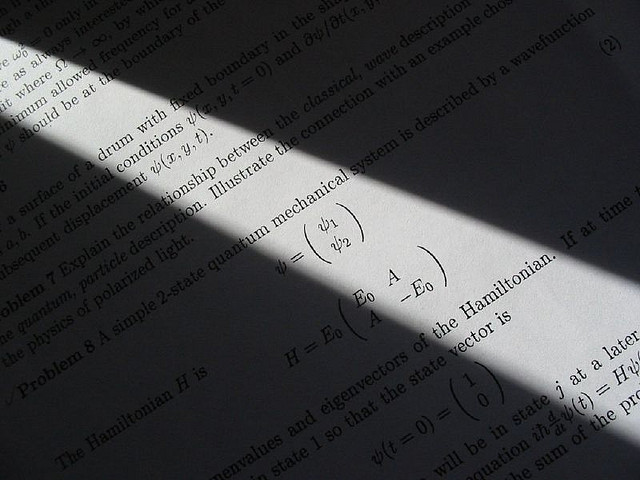 Take up where the last review left off: “. . . and if nonfiction writers are so entranced by the techniques and effects of fiction, why don’t they for chrissakes just write it?” Well, they do, they just do it cheesily. Fiction about reality – about history or, say, science — often follows the cupcake tactic and sprinkles a little history or science on top of some standard plot and conventional characters.
Take up where the last review left off: “. . . and if nonfiction writers are so entranced by the techniques and effects of fiction, why don’t they for chrissakes just write it?” Well, they do, they just do it cheesily. Fiction about reality – about history or, say, science — often follows the cupcake tactic and sprinkles a little history or science on top of some standard plot and conventional characters.
But what’s interesting is the fiction which doesn’t do that, fiction in which the science is integral. In Loving Little Egypt the plot depended at least partly on electromagnetism and the characters’ motives and acts were those of scientists. Night Thoughts of a Classical Physicist by Russell McCormmach, does the same only more thoroughly and with radical intent: he wants the reader to be the physicist; to be at home in the physicist’s institutional, social, political contexts; and to face the time when the science on which this physicist bases his work and philosophy and the meaning of his life falls to pieces.
McCormmach is a highly-credentialled historian of science. He creates his main character from a composite of several real physicists, and everything the character thinks or says or does or that happens to him is real and documentable and is in fact documented in the end notes.
 And so Victor Jakob is a gentle, high-minded physicist, getting older now and not at the peak of his career, nor was his peak all that lofty, a middling professor at a middling institute. The institute was run like a fiefdom – this is Germany in 1918 – and Jakob was denied equipment and humiliated in critiques. He’s disappointed, somewhat depressed, and occasionally unsure whether he’s thinking about physics or about the rest of life because to him they’re the same thing. He loves physics; it makes perfect sense. He loves its orderliness, as he thinks of it, the way “it connected physical facts through a small number of exact, fundamental concepts and laws.” He loves that measurable causes lead to measurable effects, the delicate mechanics of A causing B causing C. He especially loves the world ether, the ineffable fluid that suffuses the universe and carries light. He is a classical physicist and now, in 1918, his beautiful, logical mechanics are coming apart.
And so Victor Jakob is a gentle, high-minded physicist, getting older now and not at the peak of his career, nor was his peak all that lofty, a middling professor at a middling institute. The institute was run like a fiefdom – this is Germany in 1918 – and Jakob was denied equipment and humiliated in critiques. He’s disappointed, somewhat depressed, and occasionally unsure whether he’s thinking about physics or about the rest of life because to him they’re the same thing. He loves physics; it makes perfect sense. He loves its orderliness, as he thinks of it, the way “it connected physical facts through a small number of exact, fundamental concepts and laws.” He loves that measurable causes lead to measurable effects, the delicate mechanics of A causing B causing C. He especially loves the world ether, the ineffable fluid that suffuses the universe and carries light. He is a classical physicist and now, in 1918, his beautiful, logical mechanics are coming apart.
Also coming apart is World War I Germany — Jakob eats bread with turnip jam and a pound of potatoes, and had gone from weighing 180 pounds to 120 – and likewise his physics institute, which is breaking into little academic cabals mean-spiritedly competing for few resources. But what most distresses Jakob is the breakdown of the mechanical picture of the world.
Specifically what’s broken down is the picture of light. Physicists had known that light sent through a narrow slit acts like waves curling around a breakwater, piling up in some places, flattening out in others. But if light is a wave, it has to move through something, said the mechanical picture; something has to be waving. So physicists posited a medium they called the world ether. The ether had a sort of net direction, the way any moving fluid does, so physicists set about measuring the way light moved relative to the moving fluid — which should be faster when moving with the fluid and slower when moving across or against it. But light went the same speed regardless. Then Albert Einstein had one of his epiphanies and said the speed of light was a constant, always the same no matter where or in what direction, period. So much for Jakob’s beloved ether, it wasn’t needed, it didn’t exist.
Light waves were also causing trouble in an entirely different part of the physics world. A theoretical black box, heated uniformly, will glow and in the spectrum of that glow – its light broken into a rainbow – the red light should be dim, the blue light brighter, and the ultraviolet light would have no end to its brightness. But in the spectrum of a real black box, red glowed dimly, blue more brightly, but ultraviolet was dim. The theoretical box was based on impeccable and well-proven physics, so theorists called the problem the ultraviolet catastrophe. The only way to solve the problem — the only way the equations of the real box worked out — was if the rainbow was not in fact continuous, one color grading insensibly into the next, but if light came in little color packets, little particles of light. Then Einstein had another epiphany, called the light particles “photons,” and said that light must be both a particle and a wave.
Light waves are not waves in the ether, are not waves in anything at all, and are just as fundamentally particles as they are waves. It truly, deeply makes no sense. What happens to poor Jakob when his world is no longer based on reason, when the fundamental laws of the universe no longer obey cause and effect? Nothing good. Jakob’s physics and his life were indistinguishable — scientists’ often are — so that’s how the book ends, with nothing good.
The last page of the book has a photo of the thoughtful and gentlemanly Max Planck, the physicist who found that light had to be a particle and who had five children, four of whom died; and next to the photo, an excerpt from a letter Planck wrote to another physicist a year or so after Jakob died: “I am still resisting with all my might the ‘meaninglessness’ of the events of the world and trying to replace it by ‘incomprehensibility.’ But how difficult it is to carry through this point of view.”
The incomprehensibility was real, Planck was real, that letter is real, Jakob’s institute is real, his meals are real, his night thoughts are real, everyone in the book is real except him. When a book of nonfiction, for instance, invents quotes or creates imaginary scenes, the effect on the reader (on me anyway) is irritation, boredom, resentment, and all the other reactions one has when someone makes shit up and expects you to believe it’s real. The effect on the reader of McCormmach’s fiction with its foundation in reality is to know exactly why Planck says what he does and why Jakob dies, to understand and believe utterly.
_____________
Photos: Physics – somewheregladlybeyond; Mechanics – Wikimedia Commons, Diacritica
2 thoughts on “Review: Night Thoughts of a Classical Physicist”
Comments are closed.